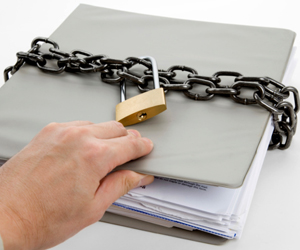
Feb. 22, 2013 – Lawyers within different U.S. Justice Department sections did not waive the attorney work product privilege by sharing information on a Wisconsin PCB clean-up case, the U.S. Court of Appeals for the Seventh Circuit recently ruled.
The suit is one piece of ongoing efforts to clean-up the Lower Fox River and Green Bay and to recover the clean-up costs from responsible parties under the federal Comprehensive Environmental Response, Compensation, and Liability Act (CERCLA).
Under CERCLA, accused polluters may enter settlements with the United States. Consent decrees must embody those settlements, subject to judicial approval to ensure a fair negotiating process. The plaintiffs in this case allege the process was not fair.
Specifically, Neenah-based Menasha Corporation and the Neenah-Menasha Sewerage Commission object to a consent decree entered into by the United States and Wisconsin with defendants Brown County and the City of Green Bay in 2010.
Under the agreement, the U.S. agreed to pay $4.5 million to the clean-up effort, recognizing that the Corps and Engineers, the EPA, and other federal agencies may have contributed to alleged pollution of the Lower Fox River. It has not been approved.
Menasha Corp. says U.S. activities increased pollution costs by much more than $4.5 million, which is less than 1 percent of the estimated $1.5 billion in costs and damages. It says other potentially responsible parties will pay more if the government pays less.
Thus, it filed suit to prove that government legal teams dealt unfairly in the negotiation process, and asked for attorney work product passed between lawyers.
“Menasha’s opposition to the proposed decree is based on suspicions concerning the bona fides of the negotiations within the Justice Department that led up to the modest estimate of the government’s liability,” Judge Richard Posner wrote for a three-judge panel in Menasha Corp. v. U.S. Dept. of Justice, No. 12-1720 (Feb. 21, 2013).
Specifically, Menasha alleges that two sections within the Justice Department’s Environment and Natural Resources Division, the Environmental Defense Section and the Environmental Enforcement Section, colluded to minimize U.S. liability.
To prove this claim, Menasha wanted 440 documents – emails, memos, and other correspondence – exchanged between section lawyers.
In general, the mental impressions, conclusions, opinions, or legal theories of a party’s attorney are privileged as work product. But Menasha said section lawyers waived this privilege, and requested the documents under the Freedom of Information Act.
“Menasha describes the sections as adversaries … and argues that therefore the emails and memos exchanged between the sections concerning the Superfund litigation have been shared between adverse parties, resulting in a forfeiture of the Justice Department’s attorney work product privilege,” Judge Posner explained.
The U.S. District Court for the Eastern District of Wisconsin, Judge William Griesbach, ordered the Justice Department to disclose the documents with a stay pending appeal.
But the appeals panel refused to characterize the Justice Department sections as adversaries that waived the attorney work product privilege when sharing information.
“Were Menasha’s position sound, the Justice Department could never shield attorney work product in a case like this – a case, not unusual, in which the federal government by virtue of its size and diversity has internal conflicts – without a crippling reorganization of the Department,” Judge Posner explained.
The panel held that “information in the nature of attorney work product exchanged among the Department’s lawyers is not information exchanged among adverse parties and is therefore privileged.”
